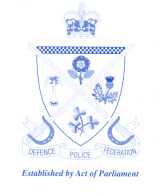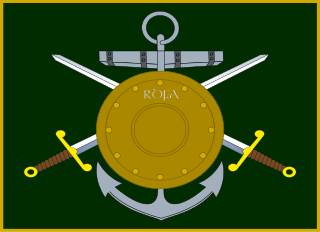Related Research Articles

Charles Chandler Krulak is a retired United States Marine Corps officer who served as the 31st Commandant of the Marine Corps from July 1, 1995 to June 30, 1999. He is the son of Lieutenant General Victor H. "Brute" Krulak, who served in World War II, Korea, and Vietnam. He was the 13th President of Birmingham-Southern College after his stint as a non-executive director of English association football club Aston Villa.
The United States Armed Forces are the military forces of the United States of America. It consists of the Army, Marine Corps, Navy, Air Force, and Coast Guard. The president of the United States is the commander-in-chief of the Armed Forces and forms military policy with the Department of Defense (DoD) and Department of Homeland Security (DHS), both federal executive departments, acting as the principal organs by which military policy is carried out. All five armed services are among the seven uniformed services of the United States.

An aide-de-camp is a personal assistant or secretary to a person of high rank, usually a senior military, police or government officer, or to a member of a royal family or a head of state.

A commander-in-chief, also called supreme commander, is the person that exercises supreme command and control over an armed forces or a military branch. As a technical term, it refers to military competencies that reside in a country's executive leadership – a head of state or a head of government.

The Chairman of the Joint Chiefs of Staff (CJCS) is, by U.S. law, the highest-ranking and senior-most military officer in the United States Armed Forces and is the principal military advisor to the President, the National Security Council, the Homeland Security Council, and the Secretary of Defense. While the Chairman of the Joint Chiefs of Staff outranks all other commissioned officers, the Chairman is prohibited by law from having operational command authority over the armed forces; however, the Chairman does assist the President and the Secretary of Defense in exercising their command functions.

The Defence Forces, are the military of Ireland. They encompass the Army, Air Corps, Naval Service and Reserve Defence Forces.

The Army Reserve (AR) is the reserve land component of the Irish Defence Forces. It is the second line reserve of the Irish Army. The Army Reserve involves military service on a part-time basis, and is one of two elements of the Reserve Defence Forces, the other element being the Naval Service Reserve (NSR).

The Royal Navy Police (RNP) is the service police branch of the Royal Navy and Royal Marines. Members of the RNP enforce law, discipline, and maintain order as outlined in the Armed Forces Act 2006.

The Organisation of National Ex-Servicemen and Women is a support organisation for ex-service personnel of the Irish Defence Services.
The Australian Defence Organisation (ADO) is composed of the armed forces of the Commonwealth of Australia, the Australian Defence Force (ADF), and the Australian Public Service government department, the Department of Defence which is composed of a range of civilian support organisations.
The Australian Defence Organisation (ADO) is composed of the armed forces of the Commonwealth of Australia, the Australian Defence Force (ADF), and the Australian Public Service government department, the Department of Defence which is composed of a range of civilian support organisations.

The commander-in-chief of the British Armed Forces, also referred to as commander in chief of the armed forces of the Crown, is a constitutional role vested in the British monarch, currently Queen Elizabeth II, who as head of state is the "Head of the Armed Forces". Long-standing constitutional convention, however, has vested de facto executive authority, by the exercise of Royal Prerogative, in the Prime Minister and the Secretary of State for Defence. The Prime Minister makes the key decisions on the use of the armed forces. The Queen however, remains the supreme authority of the military.

The Defence Police Federation (DPF) is the representative body of Ministry of Defence Police (MDP) officers, up to and including the rank of Chief Superintendent. There are around 2000 members as of 2014. Membership is restricted by law to serving officers. MDP officers have their own federation because they are also part of the Civil Service and are accountable to the Secretary of State for Defence, and not the Home Secretary. Moreover, MDP officers have different terms and conditions of service to civilian police officers. Officers' pay is directly linked to national settlements made by the Home Office and the Police Federation of England and Wales. The DPF also administer the Defence Police Retired Officers Association. With an 'all armed' membership, the DPF maintains close ties with the Police Firearms Officers Association (PFOA); as of 1 October 2014 all DPF members, have automatic membership of the PFOA.

Chapter II of the Constitution of Australia establishes the executive branch of the Government of Australia. It provides for the exercise of executive power by the Governor-General advised by a Federal Executive Council.

Ng Chee Meng is a Singaporean politician and the current Secretary-General of the National Trades Union Congress. He served as the 8th Chief of Defence Force of the Singapore Armed Forces (SAF) from 2013 to 2015, and held the rank of Lieutenant-General. He was also the Chief of the Republic of Singapore Air Force (RSAF) from 2009 to 2013. Upon retirement from military career, He announced his intention to enter politics, and is the highest ranking officer to join the ruling party. In the 2015 Singapore general election, he was fielded into Pasir Ris-Punggol GRC and won a seat successfully paving way to be a Member of Parliament.
The Queen's Birthday Honours 1964 were appointments in many of the Commonwealth realms of Queen Elizabeth II to various orders and honours to reward and highlight good works by citizens of those countries.
The Queen's Birthday Honours 1966 were appointments in many of the Commonwealth realms of Queen Elizabeth II to various orders and honours to reward and highlight good works by citizens of those countries.
The 1969 Queen's Birthday Honours were appointments to orders and decorations of the Commonwealth realms to reward and highlight citizens' good works, on the occasion of the official birthday of Queen Elizabeth II. They were announced in supplements to the London Gazette of 6 June 1969.
The Permanent Defence Force Other Ranks Representative Association (PDFORRA) is the representative body for enlisted personnel serving in the Defence Forces of Ireland.

The Reserve Defence Forces Representative Association (RDFRA) is the representative body for all ranks of the Reserve Defence Forces (RDF) in Ireland.
References
- ↑ Defence Force Regulation S6